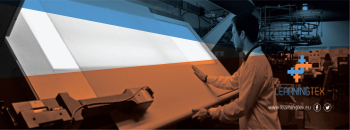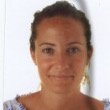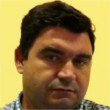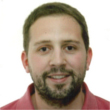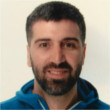Duración
4 weeks
Acerca de este curso
Industrial manufacture of textiles requests some quality control. It can be stablished by observation or by artificial vision. The most automatized the higher percentage of control an industrial process can implement. Artificial vison enhances the speed in control and allows to control the total production with the same yield.
This course is focused to professionals in textile sector who want to know about new technologies and compete against third countries generating added value to the goods developed. People enrolled in this course would improve their employability and competitiveness. It would enhance the student skills.
This course deals with an introductory lesson and defines the most common defects capable to be observed by artificial vision. Furthermore, it defines artificial vision systems and the procedure to control textile fabrics.
This course has been developed under the project LEARNINGTEX (2016-1-ES01-KA202-025640) co-funded by the Erasmus+ Programme of the European Union. This publication reflects the views only of the authors, and the Commission cannot be held responsible for any use which may be made of the information contained therein.
Que aprenderé
Do you Want to learn about quality control? Do you want to learn about artificial vision?? Furthermore, applied on textile weaves. This course is an introduction to artificial vision for quality control on textiles.
The main defects on weave fabrics will be described. The course is focused on the defects capable to be observed by artificial vision. It will be studied, the artificial vision basis, its main techniques and the procedure to observe some textile defects, which are the main important algorithms and how to apply to fabrics defects detection.
Prerrequisitos
Despite there is an introductory unit based on textile concepts, it is convenient to have some basic knowledge on textile field.
Units
- Course presentation
- Introduction to woven fabrics
- Major defects in woven fabrics
- Introduction to the most advanced technologies for quality control: artificial vision
- Using artificial vision for woven fabrics defect detection
- Final Exam
Profesores del curso
María Ángeles Bonet Aracil
Phd in industrial textile from UPV. She is working as both lecturer and researcher in textile and paper department (DTEXPA). Contents are always related to textile field as well as research lines. She has specialised on fucntionalisation of fibres and fabrics. She has been working for more than 15 years in many projects from national or international calls. Also on different agreements with companies. She has published many papers related with textiles and has collaborated in other MOOC based on microcapsules.
Pablo Díaz García
Phd in textile program from UPV. He is working as both lecturer and researcher in textile and paper department (DTEXPA). He is specialised on textile field and works on research focused on new developments of textile structures or management. He has been working for more than 20 years in many projects from national or international calls or according to different agreements with companies.
Eva Bou Belda
Phd in industrial textile from UPV. She is working as part time lecturer and as laboratory researcher in textile and paper department (DTEXPA). Contents are always related to textile field as well as research lines. She has been working for more than 10 years in UPV. She has published many papers related with textiles and has collaborated in other MOOC based on microcapsules.
Ignacio Montava Seguí
Phd in textile program from UPV. He is working as both lecturer and researcher in textile and paper department (DTEXPA). He is specialised on textile field and works on research focused on new developments of textile structures or management. He has been working for more than 20 years in many projects from national or international calls or according to different agreements with companies.
Jorge Doménech Pastor
MSc in Industrial Management Engineering and BSc Degree in Mechanical Engineering by the Polytechnic University of Valencia (UPV). He has worked at AITEX since 2011 as a Project Technician and as a Project Manager in several international projects (H2020, FP7, Erasmus +, etc.) in the research group of Intelligent Textiles and ICT Solutions.
Juan Campos Payá
Phd in industrial textile and MSc in Industrial Management Engineering from UPV. He also completed the Master's Degree in Textile Engineering from UPV in 2012. It should be noted that along with the completion of the master's degree, he worked as a laboratory technician in the department of textile engineering at the UPV. He works at AITEX Research Centre since 2016 as an R+D Project Technician and has been involved in some national and international projects.
Miguel Valor Cerdá
MSc in Industrial Management Engineering and BSc in Management Computing Engineering from UPV. He currently belongs to the AITEX research group of Intelligent Textiles and ICT Solutions as a technician in R+D projects. Since 2010 he has actively participated in all the projects executed by this group.

